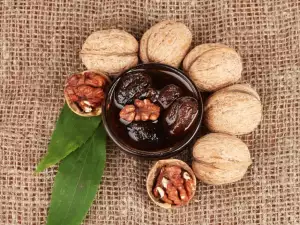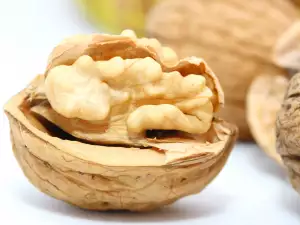The fig is a plant typical of the Mediterranean and Asia, where there is still a wide variety of wild forms. It is a plant that requires a lot of heat and reaches a height of up to seven meters.
In some colder regions, it is grown as a shrub, but in winter it is covered with soil to protect it from frost. It is believed that Bulgaria is the northern border for its distribution on the old continent. In Bulgaria, however, the tree from which Adam took a leaf for his first suit, grows successfully mainly on the Black Sea coast and in southern Bulgaria. Fig trees are also found in the cities along the Danube River.
The leaves of the fig are large, dark green with a rough surface. In colder climates, they fall off in autumn, while in warm countries the fig has leaves, flowers, green and ripened fruits at any time of the year.
The beneficial and medicinal properties of the fig allow its widespread use in folk medicine. Even in Ancient Greece, fig fruit was highly valued and used as a food that strengthens the body and gives it strength.
Some varieties of dried figs contain 6 g of protein and 70 g of sugar. The energy value is 340 kcal per 100 g of product. Figs have the highest level of fiber among all fruits and vegetables. They were taken as a medicine that gives strength and energy to long-suffering patients who need to recover. The most important nutritional component of figs is sugar, which covers between 51 and 74% of the entire fruit.

Figs are recommended for the treatment of asthma, coughs and colds. A warm decoction of figs in water or milk is used for colds and inflammation of the respiratory tract.
For this purpose, it is necessary to wash two or three fruits, pour a glass of milk and boil over low heat until the milk turns brown. Drink the liquid and eat the boiled figs 2-3 times a day between meals. This course of treatment, known in folk medicine, not only eliminates the annoying cough, but also strengthens the person's immune system.
The daily dose is 2 teaspoons of fruit per 1 cup of milk, which is split in 2 doses to drink. Gargle with fig decoction for inflammation of the gums. Fig improves the condition of the stomach and kidneys and serves as a diuretic. It is full of small grains that absorb and extract gases accumulated in the stomach and intestines, and these organs can function properly again.

Figs are especially useful for diseases of the cardiovascular system, as they are rich in potassium. Potassium reduces the tension in the blood vessels and dilates them. Figs plays an important role in preventing hypertension and are useful for anemia.
The enzymes contained in it reduce blood clotting, prevent the formation of vascular thrombosis. They relieve palpitations and help the body form blood cells.
Read more about the benefits of figs and find out what fig leaf tea helps with.




















Comments